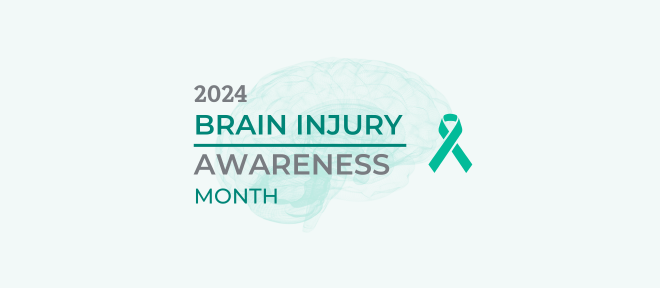Annually, a significant number of individuals across the globe encounter the complexities associated with brain injuries, managing the symptoms, undergoing rehabilitation, and adapting to any enduring challenges that may ensue.
Bond Turner feel it is imperative to increase awareness surrounding brain injuries to promote understanding, support prevention efforts, and improve access to rehabilitation services.
As part of Brain Injury Awareness Month, we are raising awareness of the effects of Long Covid on the brain and of healthcare workers who are experiencing symptoms of brain injury due to contracting Covid while serving on the front lines during the COVID-19 pandemic.
COVID-19 Related Brain Injury
Certain infections can affect various parts of the brain, including the brain tissue itself (encephalitis), the protective layers surrounding the brain (meningitis), or the blood vessels supplying the brain (vasculitis). Source Headway.
Research has demonstrated the effects of Covid-19 on the brain are real with studies demonstrating disruption of blood flow to the brain and inflammation to the brain triggered by SAR-CoV-2.
Research produced by the University of Liverpool and King’s College London has shown that markers of brain injury are present in the blood many months after COVID-19 infection.
Professor Benedict Michael, Principal Investigator and Director of the University of Liverpool’s Infection Neuroscience Laboratory said:
“Significant and potentially life-changing new neurological ‘complications’ were occurring, including encephalitis (brain inflammation), seizures, and stroke” during the COVID-19 pandemic. Source Liverpool AC.UK.
Long Covid – an Acquired Brain Injury
Recent findings also suggest an association between Long Covid and brain injury. The effects of Covid-19 can be far reaching including fatigue, sleep disturbances such as insomnia, vertigo, alterations in taste or smell perception, cognitive impairment often referred to as “brain fog,” as well as psychological manifestations like depression and anxiety.
Among the array of lingering symptoms, “brain fog” emerges as a prevalent and enduring complaint among patients, impacting up to 46% of individuals. Source Med Scape.
Cognitive impairment is frequently observed among individuals grappling with Long Covid, and the full extent of their cognitive dysfunction often only becomes apparent when they return to work. Source Royal College of Nursing.
Long Covid presents a substantial threat to overall health, with a higher likelihood of affecting women, individuals in their working years, persons with disabilities, and those employed in the health and social care sector. Source Royal College of Nursing.
“We now stand with healthcare workers suffering from the long-term effects of contracting Covid at work and we are committed to seeking justice for those who were exposed to an unnecessary risk of infection while working on the front line
We are encouraging all healthcare workers who believe they may have been affected to come forward and join the action as soon as possible, so there is sufficient time for their claim to be fully considered and investigated.”
Sara Stanger – Head of Clinical Negligence and Serious Injury Claims
Covid Group Action for Healthcare Workers
Bond Turner is committed to supporting healthcare workers grappling with the long-term effects of workplace-contracted COVID-19.
To join the legal action initiated by healthcare professionals, including nurses, across England and Wales who are suffering from Long Covid please follow the link below.
The deadline for further health workers to join the action is 5 July 2024.
Join the Action:
Please only complete this form if you contracted COVID-19 at work whilst working as a healthcare professional.
